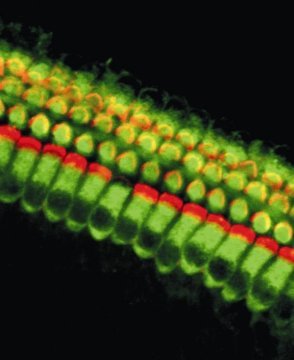
Any supplement billed as a secret, rapid muscle-builder is likely to harm your health – but there are proven products that work alongside regular weight training. Chief among them is branched-chain amino acids (BCAAs).
Research is as conclusive as it can be that BCAA supplementation before, during and after training not only prevents muscle tissue from being broken down, but can also help to induce muscle protein synthesis so your muscles grow bigger and stronger.
Taking BCAAs also improves muscular endurance, increases energy levels and reduces recovery time, making them beneficial both for those seeking lean muscle gains and for endurance athletes.
You’ll typically find BCAA supplements in capsule or liquid form, which makes them a convenient to consume at pretty much any time of day including before, during or after your workout. However, BCAAs are also found in other forms. The best protein powders on the market are generally high in BCAAs, which makes a supplement more bioavailable (readily absorbed and metabolised by the body).
Below we answer some of your key BCAA questions, but before we get to that, it’s worth highlighting that excessive BCAA supplementation can lower your levels of other nutrients, specifically vitamin B6. So if you want to start taking BCAAs either find a product that also includes vitamin B6, or take a regular multivitamin to prevent depletion.
What are they?
Amino acids are chains of organic compounds primarily made from the elements carbon, nitrogen, hydrogen and oxygen. More than 500 amino acids are currently known and classified, but only 23 are involved in the process of building proteins. This group is known as the proteinogenic amino acids, which combine into peptide chains (polypeptides) to form the building blocks of a vast array of proteins.
Nine of the 23 proteinogenic group are known as “essential” because, unlike the other 14, your body cannot create them from other compounds. This means you need to consume these amino acids – phenylalanine, valine, threonine, tryptophan, methionine, leucine, isoleucine, lysine, and histidine – through your diet. Of these, valine, leucine and isoleucine are grouped together and known as branched-chain amino acids (BCAAs). A “complete” protein source is a food or supplement that contains all nine of the essential amino acids, while an incomplete protein source contains some, but not all, of the nine.
Why are they so important?
BCAAs are the only amino acids not regulated by the gut and liver, which means they head straight to the bloodstream and muscle tissue. There’s evidence that they lower lactate levels, making recovery faster, and increase the release of growth hormone during exercise.
Who should take them?
People who are training extremely hard or in a “fasted” state. Ordinarily, if you train in a fasted state, or don’t eat after exercise, you’ll lose more protein than you rebuild. BCAAs can offset this effect, so are an ideal mid-morning supplement if you’re on some variation of a fasting diet.
How should I take them?
Take them in pill form or add the powdered version to a workout drink at a rate of 5g per hour of training. If you’re on a diet such as the 16/8 fast, take a similar dose mid-morning with green tea.
Taking 100mg of BCAAs per kilogram of bodyweight before a heavy squat session significantly reduces post-workout muscle soreness, according to the International Journal Of Sport Nutrition And Exercise Metabolism.
What about in my protein shake?
Whey protein powder comes in one of four forms: concentrate, isolate, hydrolysate and native. All four types are abundant in BCAAs but double check the label on the tub to be sure you’re not getting short changed. What about other protein powders? Egg and soy proteins are complete protein sources containing all the essential amino acids. Hemp is low on leucine while rice and pea proteins are not complete so you can’t rely on them alone to fulfil your BCAA needs.
Can I just get BCAAs from food?
Most people find it hard to keep food down if they eat before working out, let alone trying to stuff your face during a gym session (hence why supplements are so useful). That said, eating plenty of BCAA-rich foods in your daily diet is definitely a good idea anyway, even if you don’t lift weights. Eggs, beef and turkey are all good places to start, as they’re complete protein sources – so-called because they contain the full range of essential amino acids, including leucine, isoleucine and valine.
[“source-coachmag”]























